
Minorities in the Contemporary Egyptian Novel
Edinburgh Studies in Modern Arabic Literature
Series Editor: Rasheed El-Enany
Writing Beirut: Mappings of the City in the Modern Arabic Novel
Samira Aghacy
Autobiographical Identities in Contemporary Arab Literature
Valerie Anishchenkova
The Iraqi Novel: Key Writers, Key Texts
Fabio Caiani and Catherine Cobham
Sufism in the Contemporary Arabic Novel
Ziad Elmarsafy
Gender, Nation, and the Arabic Novel: Egypt 18922008
Hoda Elsadda
The Unmaking of the Arab Intellectual: Prophecy, Exile and the Nation
Zeina G. Halabi
Post-War Anglophone Lebanese Fiction: Home Matters in the Diaspora
Syrine Hout
Nasser in the Egyptian Imaginary
Omar Khalifah
Conspiracy in Modern Egyptian Literature
Benjamin Koerber
War and Occupation in Iraqi Fiction
Ikram Masmoudi
Literary Autobiography and Arab National Struggles
Tahia Abdel Nasser
The Arab Nah ah: The Making of the Intellectual and Humanist Movement
ah: The Making of the Intellectual and Humanist Movement
Abdulrazzak Patel
Sonallah Ibrahim: Rebel with a Pen
Paul Starkey
Minorities in the Contemporary Egyptian Novel
Mary Youssef
edinburghuniversitypress.com/series/smal
Minorities in the Contemporary
Egyptian Novel
Mary Youssef

Edinburgh University Press is one of the leading university presses in the UK. We publish academic books and journals in our selected subject areas across the humanities and social sciences, combining cutting-edge scholarship with high editorial and production values to produce academic works of lasting importance. For more information visit our website: edinburghuniversitypress.com
Mary Youssef, 2018
Edinburgh University Press Ltd
The Tun Holyrood Road
12 (2f) Jacksons Entry
Edinburgh EH8 8PJ
A CIP record for this book is available from the British Library
ISBN 978 1 4744 1543 9
The right of Mary Youssef to be identified as author of this work has been asserted in accordance with the Copyright, Designs and Patents Act 1988 and the Copyright and Related Rights Regulations 2003 (SI No. 2498).
Contents
Series Editors Foreword
E dinburgh Studies in Modern Arabic Literature is a new and unique series that will, it is hoped, fill in a glaring gap in scholarship in the field of modern Arabic literature. Its dedication to Arabic literature in the modern period, that is, from the nineteenth century onwards, is what makes it unique among series undertaken by academic publishers in the English-speaking world. Individual books on modern Arabic literature in general or aspects of it have been and continue to be published sporadically. Series on Islamic studies and Arab/Islamic thought and civilisation are not in short supply either in the academic world, but these are far removed from the study of Arabic literature qua literature, that is, imaginative, creative literature as we understand the term when, for instance, we speak of English literature or French literature. Even series labeled Arabic/Middle Eastern Literature make no period distinction, extending their purview from the sixth century to the present, and often including non-Arabic literatures of the region. This series aims to redress the situation by focusing on the Arabic literature and criticism of today, stretching its interest to the earliest beginnings of Arab modernity in the nineteenth century.
The need for such a dedicated series, and generally for the redoubling of scholarly endeavour in researching and introducing modern Arabic literature to the Western reader, has never been stronger. Among activities and events heightening public, let alone academic, interest in all things Arab, and not least Arabic literature, are the significant growth in the last decades of the translation of contemporary Arab authors from all genres, especially fiction, into English; the higher profile of Arabic literature internationally since the award of the Nobel Prize for Literature to Naguib Mahfouz in 1988; the growing number of Arab authors living in the Western diaspora and writing both in English and Arabic; the adoption of such authors and others by mainstream, high-circulation publishers, as opposed to the academic publishers of the past; the establishment of prestigious prizes, such as the International Prize for Arabic Fiction (the Arabic Booker), run by the Man Booker Foundation, which brings huge publicity to the shortlist and winner every year, as well as translation contracts into English and other languages; and very recently, the events of the Arab Spring. It is therefore part of the ambition of this series that it will increasingly address a wider reading public beyond its natural territory of students and researchers in Arabic and world literature. Nor indeed is the academic readership of the series expected to be confined to specialists in literature in the light of the growing trend for interdisciplinarity, which increasingly sees scholars crossing field boundaries in their research tools and coming up with findings that equally cross discipline borders in their appeal.
During the months of January and February of 2011, Tahrir Square in downtown Cairo acquired international fame, fronting in news bulletins of all genres of media across the globe, and invoking reverence in the corridors of the UN, in the White House, Downing Street, the lyse, and many other seats of power. It was a glorious moment in the history of modern Egypt, when hundreds of thousands of the Egyptian people congregated in Tahrir Square between January 25 and February 11 demanding and finally achieving, at the expense of many hundreds of their lives, the overthrow of the autocrat Hosni Mubarak and his corrupt regime. Regardless of what happened in the five years since 2011 and the failure of the uprising, and the eventual return of the military to power with much loss of the freedoms gained in its aftermath, Tahrir Square and the popular uprising for which it became a focal point has gained an iconic status in contemporary Egypt.
Egyptian events of 2011, and the Arab Spring in general, may have taken world politicians by surprise, but not quite as many of Egypts intellectuals, including novelists. For popular revolutions to happen, a new consciousness needs to have been fermenting for a while, an increasing awareness of the failings of the status quo coupled with an aspiration to something different. Invariably literature plays a core role in fomenting such new consciousness, and it is up to literary historians and critics to look back after the event and trace the beginnings of this new consciousness in the literary products of the decades leading up to a momentous historical change. This is what this timely study attempts to do, bringing scholarship up to speed with the contemporary socio-political scene. It may be too early to study how the events of the 2011 uprising have been reflected in literature. Indeed, this literature may be still in the making. However, it is not too soon to look, as this study does, for the premonitions of the new consciousness in the literature of the decades leading up to the uprising. The novels constituting the backbone of this study were written in the twenty-first century, that is, in the ten years preceding the uprising, and all deal with communities marginalised on account of their difference and their minority status. Tahrir Square was the crucible and the moment that provided all communities in Egypt, however different, with a voice, a sense of entitlement, of being part of the larger whole, with a stake in what was happening. It is as if the fiction under study here was a herald for that moment: its prophetic soul, to use an apt phrase from Shakespeares
Next page
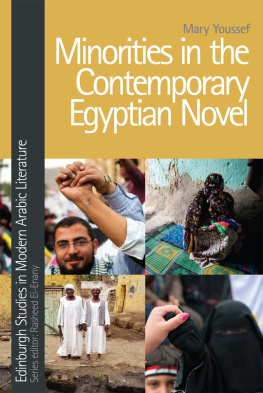

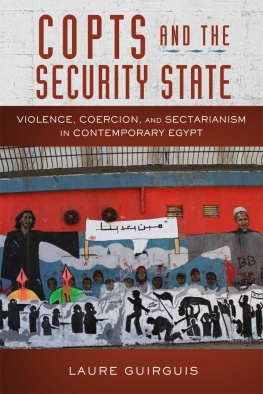
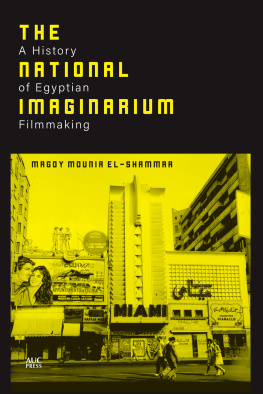
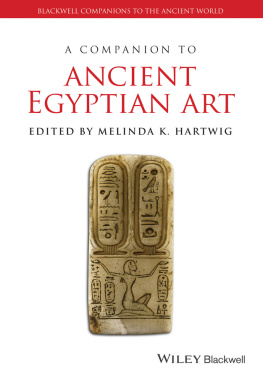
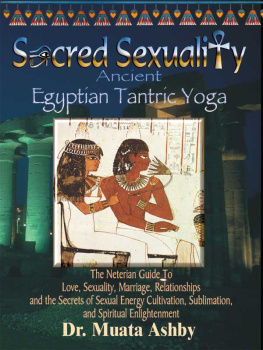

 ah: The Making of the Intellectual and Humanist Movement
ah: The Making of the Intellectual and Humanist Movement